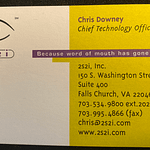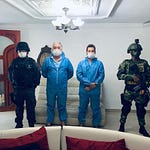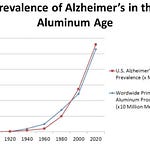Yoho comment: Fred writes about US history and government here. With his help, I abridged his essay for simplicity and added audio. If you see this as a boring civics lesson, skip to the appendix, where another expert explains the circumstances where the Second Amendment gets personal.
Sophisticated readers may think this is rudimentary, but I have to start somewhere since my background is limited.
Here is Fred
During the hot Philadelphia summer of 1787, some delegates at the Constitutional Convention advocated adding a list of individual rights within their new document. Many opposed this idea because they thought that such a list might be subject to abuse. They wanted to form a new government that derived its authority from the people through the Constitution and confined by defined limits. Congress divided, separated, and balanced powers to prevent tyranny.
Historians know James Madison as the “Father of the Constitution.” He, John Jay, and Alexander Hamilton published 85 “Federalist Papers” after the Convention to persuade the states to ratify the Constitution. They advocated a Constitution without a Bill of Rights and pointed to the Preamble. This states, "... the People of the United States … secure the Blessings of Liberty..." Likewise, in Federalist No. 84, Madison wrote, "… The Constitution is itself, in every sense, and to every useful purpose, a Bill of Rights."
The "Anti-Federalists" feared that an overreaching Federal government would lead to tyranny. Patrick Henry was among this group, and Thomas Jefferson expressed reservations about the new Constitution from his residence in France. These leaders and others advocated the addition of a Bill of Rights. Jefferson wrote, "I … hope a bill of rights will be formed, to guard the people against the federal government."
The delegates signed the Constitution on September 17, 1787, without a Bill of Rights. But they made developing this one of the first tasks for the new Congress. It finally adopted the Bill of Rights in 1791, and the remaining states then ratified the entire document.
Some proposed that the new Congress enact a statute rather than these amendments to the Constitution. However, there was a concern that a future Congress might repeal laws like these. Under the leadership of Alexander Hamilton, 200 proposals about fundamental rights were gathered from the states. This list narrowed to 12, then 10. On December 15, 1791, Congress ratified the Bill of Rights as the first ten Amendments to the Constitution.
Yoho note: The Bill of Rights is a brake on the power of the Federal Government, and the globalists are wrecking it. RFK Jr. does a superb job of telling the story. As I explain later, my feelings about him are mixed because he is wrong about firearms and other issues.
RFK Jr. says that never in history has the Bill of Rights been so suspended as during the pandemic. These are his points and a few others:
The First Amendment has been weakened by censorship, which he says “licenses any atrocity.”
With the lockdowns, nearly every church in the USA was closed (South Dakota ignored this), and freedom of assembly was abolished for a year without supporting scientific information.
An unconstitutional pandemic exception was created for the right to redress by lawsuit. The framers knew about epidemics, which ravaged every US city in their day.
Property rights were abolished, violating the Fifth Amendment, when 3.3 million businesses were closed with no due process or just compensation.
The January 6th defendants were held without bail or charges, violating their Sixth Amendment rights.
Jury trials against vaccine companies were banned, violating the Seventh Amendment.
"The Constitution was written for hard times, and we need to restore that," Kennedy said. "There's no excuse for suspending our Constitution. There certainly is not a pandemic exception in the Constitution."
The Amendments with brief descriptions:
One
Congress shall make no law respecting an establishment of religion, or prohibiting the free exercise thereof; or abridging the freedom of speech, or of the press, or the right of the people peaceably to assemble and to petition the Government for a redress of grievances.
Congress cannot create a national religion, and citizens have the freedom to practice their chosen religion.
Congress cannot stop anyone from expressing himself through speech, writing, or printing.
This guarantees the ability to assemble peacefully with others to discuss any subject.
It safeguards the right to petition the government for redress of grievances.
Two
A well-regulated Militia, being necessary to the security of a free State, the right of the people to keep and bear Arms, shall not be infringed.
This was to prevent the Federal Government from enacting regulations that might infringe upon the lawful possession and utilization of firearms and the formation of state militias and citizen-led armed forces.
Three
No Soldier shall, in time of peace be quartered in any house, without the consent of the Owner, nor in time of war, but in a manner to be prescribed by law.
During the Revolution, the British government compelled American colonists to provide food and lodging for soldiers. This was deeply resented and conflicted with a free society based on property ownership.
Four
The right of the people to be secure in their persons, houses, papers, and effects, against unreasonable searches and seizures, shall not be violated, and no Warrants shall issue, but upon probable cause, supported by Oath or affirmation, and particularly describing the place to be searched, and the persons or things to be seized.
Old English law said government officials couldn't arrest people or search their homes without good reason. British officers in America disregarded this law. This Amendment was designed to stop arrests and searches by the government without a warrant.
Five
No person shall be held to answer for a capital, or otherwise, infamous crime, unless on a presentment or indictment of a Grand Jury, except in cases arising in the land or naval forces, or in the Militia, when in actual service in time of War or public danger; nor shall any person be subject for the same offense to be twice put in jeopardy of life or limb; nor shall be compelled in any criminal case to be a witness against himself, nor be deprived of life, liberty, or property, without due process of law; nor shall private property be taken for public use, without just compensation.
The government cannot put you on trial for a serious crime unless a grand jury finds a good reason to believe that a crime has happened. (Capital crimes are those for which the penalty may include death, while infamous crimes are those punishable by more than one year in prison.) And if you have already been tried and found not guilty, they cannot try you again for the same crime.
During your trial for a crime, the government cannot compel you to incriminate yourself. The government must follow a fair legal process to punish you. They can't execute or imprison you or take your property without cause. If the government requires your property for a valid reason, it must fairly compensate you.
Six
In all criminal prosecutions, the accused shall enjoy the right to a speedy and public trial, by an impartial jury of the State and district wherein the crime shall have been committed, which district shall have been previously ascertained by law, and to be informed of the nature and cause of the accusation; to be confronted with the witnesses against him; to have compulsory process for obtaining witnesses in his favor, and to have the Assistance of Counsel for his defense.
Speedy trials prevent overly long pretrial detentions.
The trial must be open to the public, which prevents secret trials.
The community must form an unbiased jury.
The Amendment upholds due process and protects the rights of the accused.
Seven
In Suits at common law, where the value in controversy shall exceed twenty dollars, the right of trial by jury shall be preserved, and no fact tried by a jury shall be otherwise re-examined in any Court of the United States, then according to the rules of the common law.
This focuses on "civil suits." These are disagreements between people about their rights and duties. In Federal court, individuals involved in such cases can request a trial by jury. Yet, a jury is optional if all parties agree to waive it or if the amount in question is $20 or less. And in certain situations, judges in a higher court can change the decision made by the lower court's jury:
If there was a misunderstanding of the precise interpretation of the law in the lower court or
If the jury reached its verdict without enough evidence for the facts presented to them.
Eight
Excessive bail shall not be required, nor excessive fines imposed, nor cruel and unusual punishments inflicted.
This instructs authorities to treat criminals fairly and not torture them.
Nine
The enumeration in the Constitution, of certain rights, shall not be construed to deny or disparage others retained by the people.
The rights absent from the Constitution are retained by the people.
Ten
The powers not delegated to the United States by the Constitution, nor prohibited by it to the States, are reserved to the States respectively, or to the people.
The Federal Government only has the powers listed in the Constitution. The states reserved certain powers, and the people reserved all other powers. John Adams stated that no government's laws can take away rights that “come from a higher power."
A court case summarizes the principles behind the Bill of Rights.
"History is clear that the first ten amendments to the Constitution were adopted to secure certain common law rights of the people, against invasion by the Federal Government" (from Bell v. Hood, 71 F. Supp., 813, 816,1947, USDC, So. Dist. CA). These words and our tattered Constitution protect us still.
Incorporation Doctrine
The United States ratified the Bill of Rights in 1791, but it applied only to the Federal government. In 1868, the 14th Amendment began extending the Bill of Rights to the states. When the Supreme Court created the “incorporation doctrine,” states were also directed to follow the Bill of Rights.
This cartoonish video is a review:
Appendix by Kristian Solem: The Second Amendment may become paramount
Can a public armed with pistols, rifles, and shotguns stand up against the military power of the Federal Government? Won't the military show up with tanks, aircraft, artillery, and fully automatic assault weapons? Yes, they can. But will they? Can a central government and its media toadies prevail in the United States?
We cannot be sure what would happen, but all but one of the possible scenarios spell hard times for an oppressor. That is an unarmed nation under the jackboot of tyranny.
The Army has 500,000 people. About half are overseas, and only one in ten have seen combat. There are also 35,000 Marines. These total fewer than 550,000 troops. There are 400,000,000 guns in the US, and civilians own 98% of them. The average gun owner has five, which is 80,000,000 of us. If one in ten stands up, there are 8,000,000 fighters. Such a military would outnumber the Army by over 7 million—and that is if every soldier came home.
Would the Army, Marines, and Air Force use the big guns to massacre the citizens they are sworn to protect? Would they bring their tanks, jets, and artillery? Would a command to attack American citizens be obeyed? Could an Air Force Captain get in an A-10 airplane and kill American citizens? Would a Major crew up a B-52? Would he be able to muster a crew? All this seems unlikely.
How many in the military would join the citizens and defend their homes? What about the local police forces? The National Guard? With whom would they stand?
A weak, unarmed populace could never force these questions upon a government ignoring the Bill of Rights.
Yoho footnote
We are facing the importation of illegal aliens by our government—an overthrow of our rule of law. Some fear that our Judas government will soon be arming them. Kris’s analysis did not take this situation into account. If you can stand to learn more, see the Substack posts by Michael Yon.
Here is my article about buying your first gun(s).
Kris Solem’s complete essay explaining the Bill of Rights focusing on the right to bear arms may be downloaded below.
Yoho parting shot about RFK, Jr.
Although I sometimes write (mostly republish) articles about current events, I am primarily a medical commentator. So please forgive my naïveté about politicians. For example, in a fit of fanboy enthusiasm, I once gave Schwarzenegger a $5,000 campaign contribution. I got dinner in a group of 25 and shook his hand in the elevator. I must have stupidly thought he would reprise his cinematic heroism on a bigger stage. I was deluded.
Hannity recently called Kennedy out:
You're pretty liberal. You know, you've called for curbing logging, oil drilling, fracking. You wanted to eliminate it. You called it a victory for democracy. You want to curb U.S. fossil fuel extraction. 'Keep it in the ground,' you once tweeted. You want a ban on fossil fuel extraction, a ban on fracking.
You once called the NRA a 'terror group.' You supported, over the years, Democrats – Gore, Kerry, Obama, Hillary. You praised Bernie Sanders multiple times. You support affirmative action.
There is more at that link, including the dates RFK said these things. They were recent. He also favors “reparations,” which would further damage US race relations. Could any recipient of this free money ever hold his head up again? Is it possible to avoid resenting those giving you handouts? Of course not. I’d like to say this was the most insane idea I’ve heard lately, but it has competition.
RFK Jr. remains a radical Democrat. Many of this group’s ideas and politics precisely mirror the globalists.’ Whitney Webb writes that the Party was hijacked long ago and is still a puppet. To Kennedy’s credit, he has worked with her to publicize these messages.
RFK Jr. has done great good in the world. His work fighting corporate environmental ruination is admirable. No one wants careless stewardship of nature, but promoting the fraudulent climate apocalypse to intimidate us and steal what we have is a hoax invented by global psychopaths.
RFK’s stance against all vaccines is accurate and courageous. When he started talking about it, he was practically a lone voice. In recent years, he has battled the Covid lies. He also exposed and discredited Fauci when he wrote The Real Anthony Fauci. Kennedy forced the man to admit in writing that there had never been placebo controls in any vaccine pre-approval study.
But throwing away fossil fuels would starve millions for no advantage (see the chapters in Cassandra’s Memo). And abandoning the Second Amendment would strip us of our last defense against the international criminals.
People transform under the press of circumstances, as JFK did. But even in this psychotic era, a woman cannot mutate into a gay male. Or a hard leftist abandon his friends and beliefs and act rationally. I hope Kennedy has a role to play in our future, but unless he becomes a different man than he was a few short years ago, it must not be in the White House.












Share this post